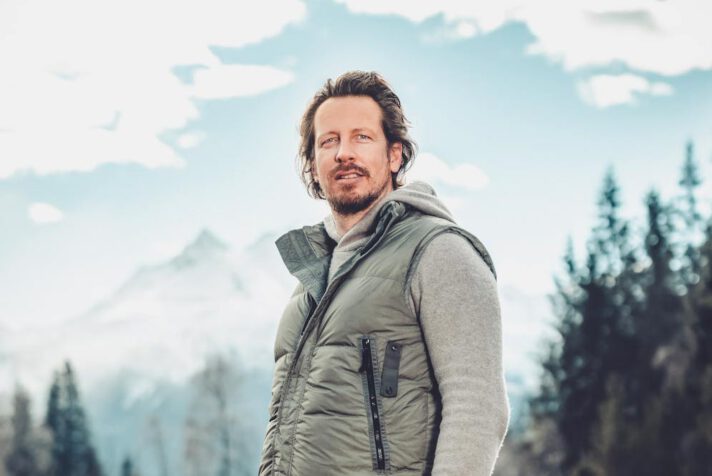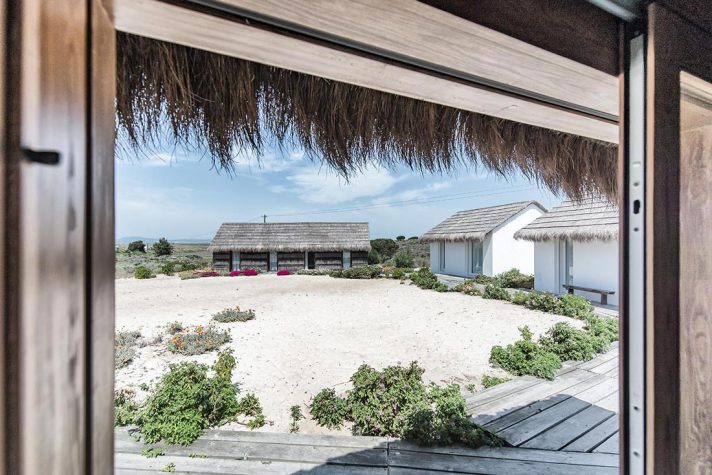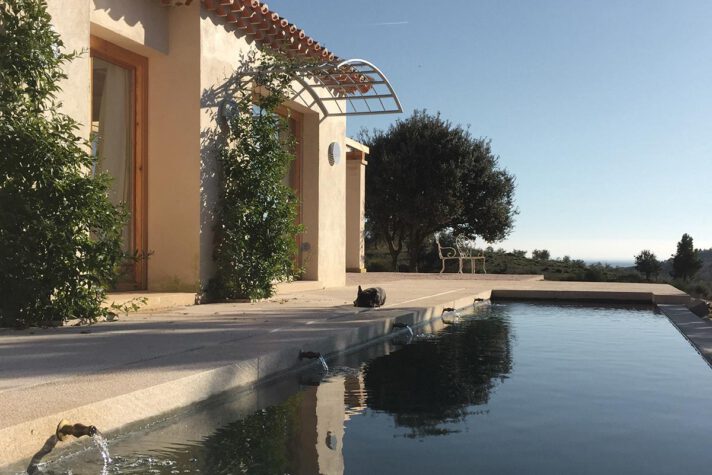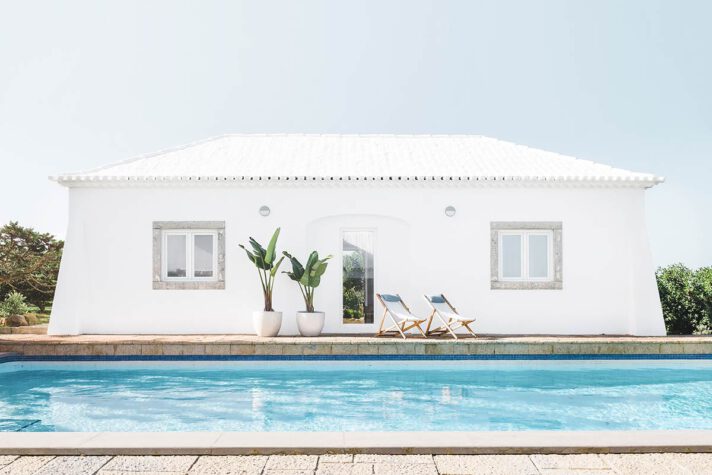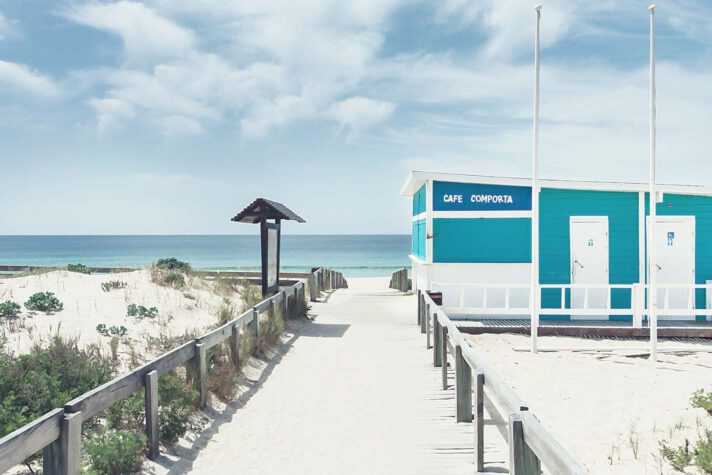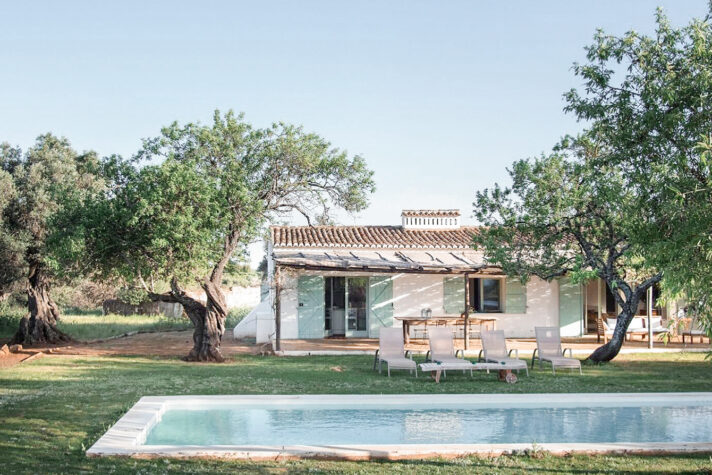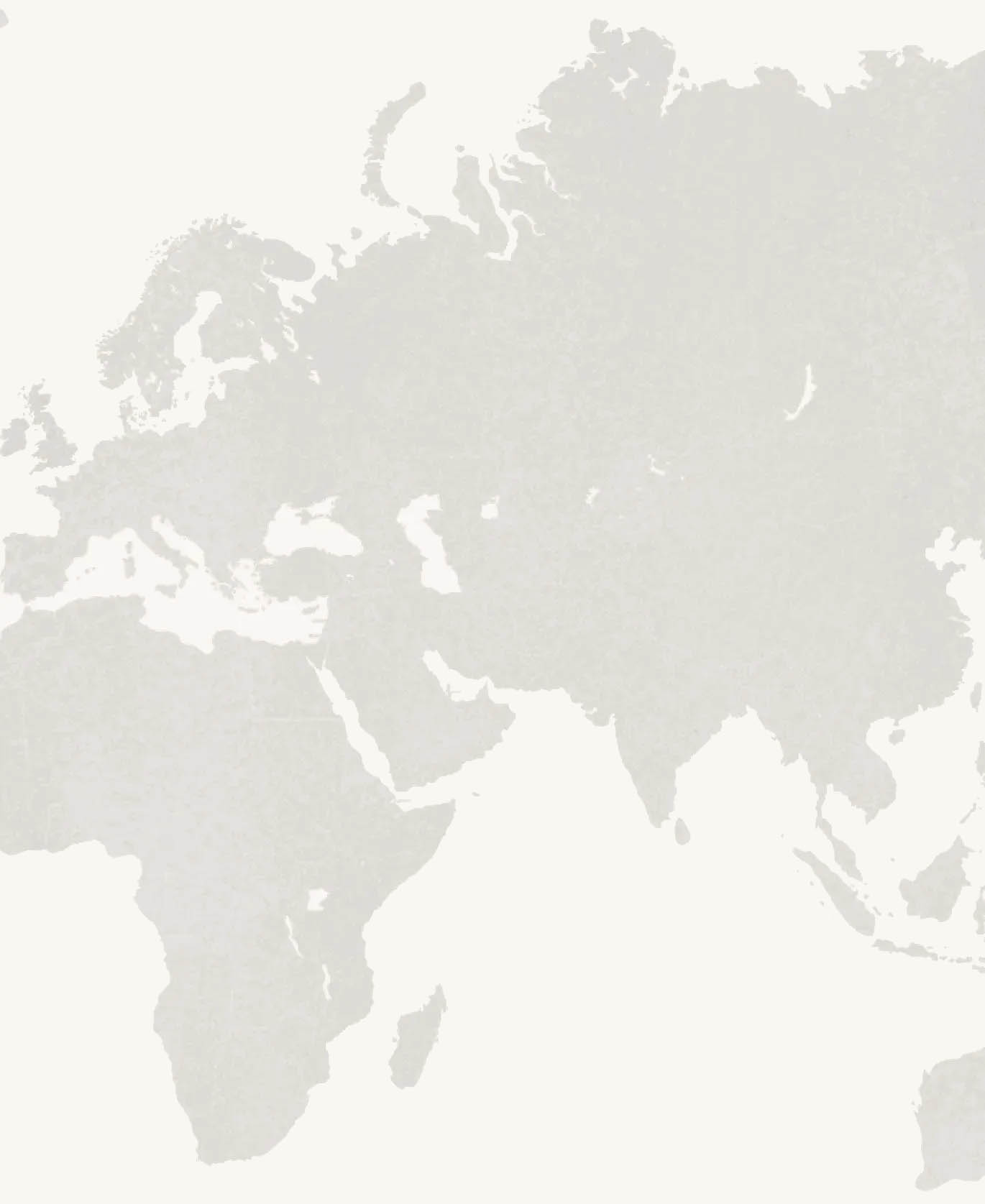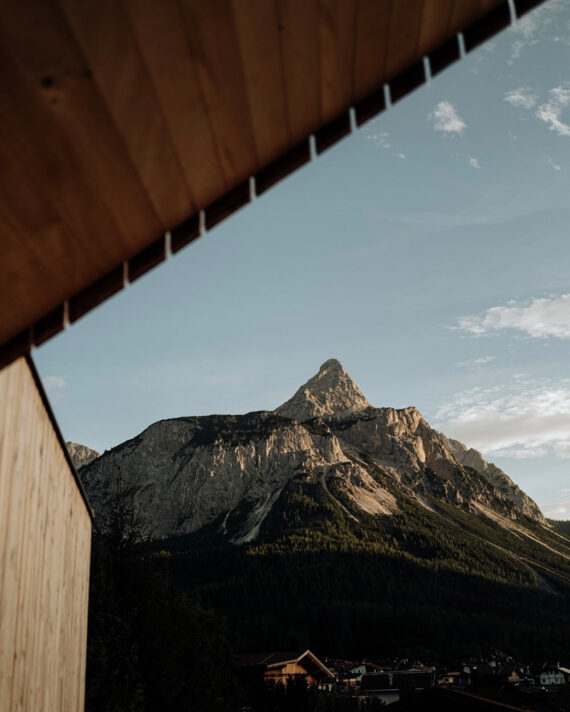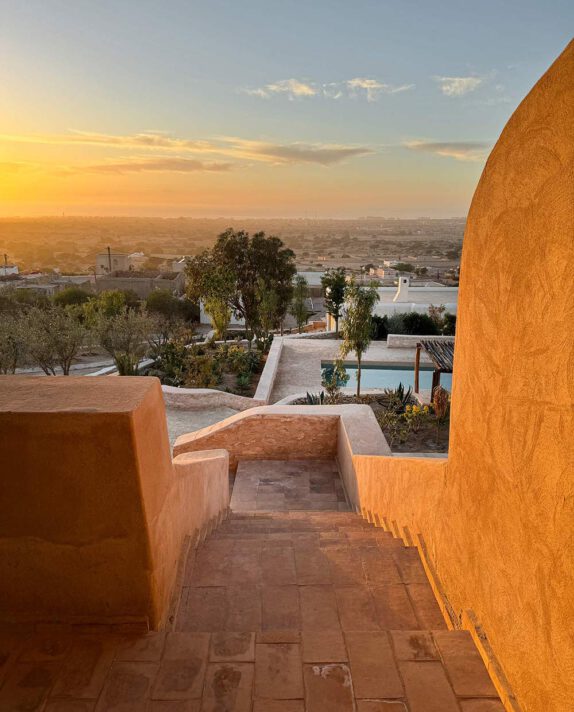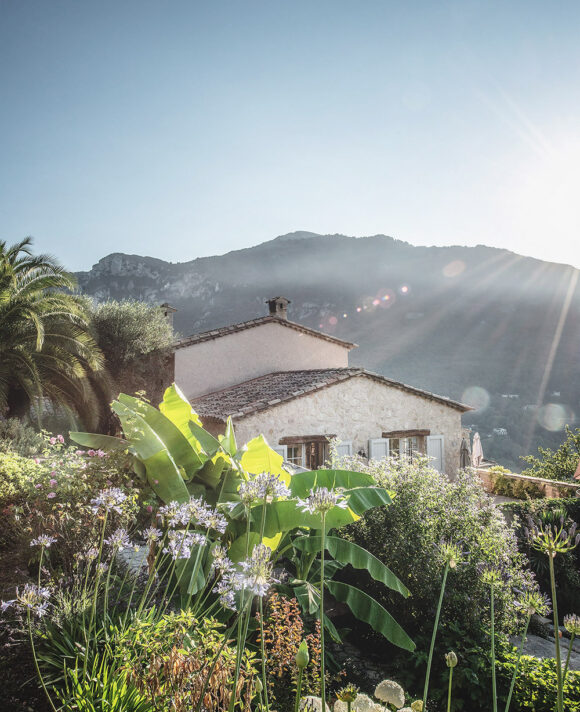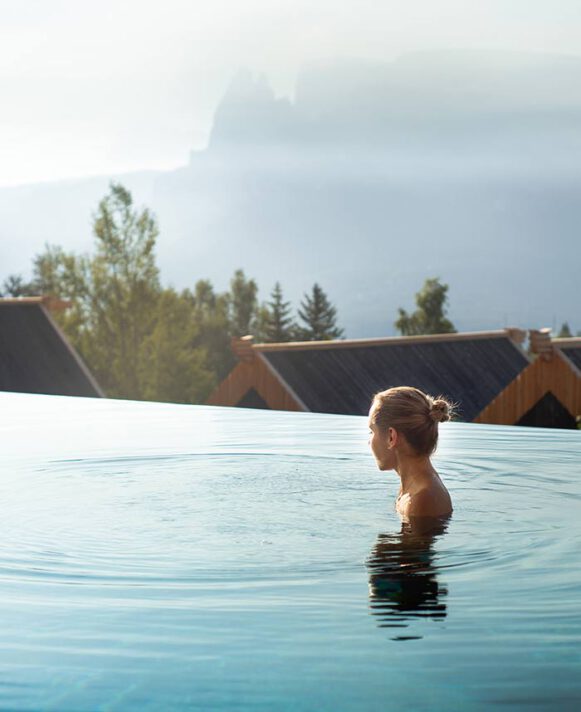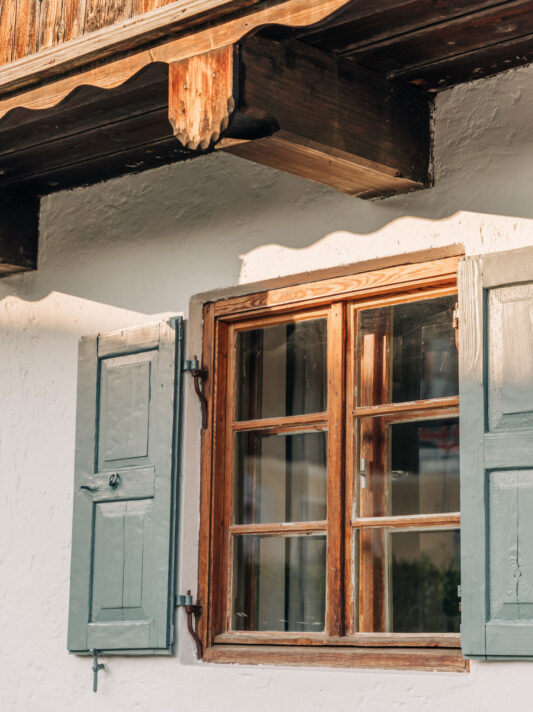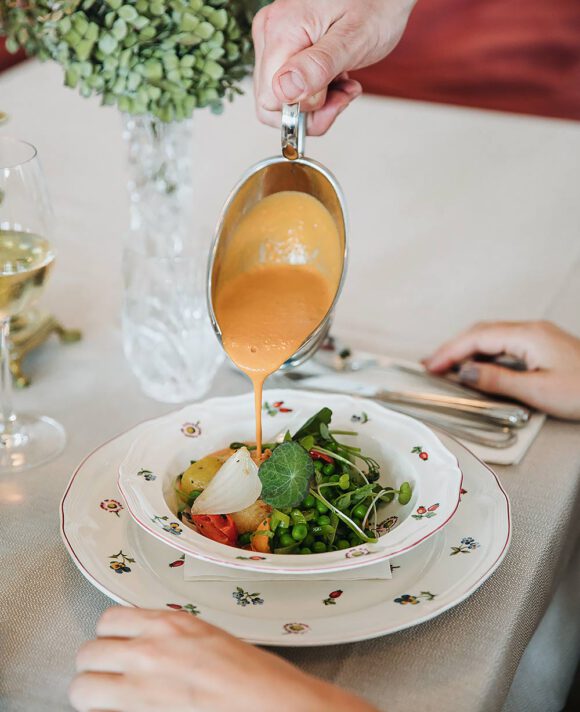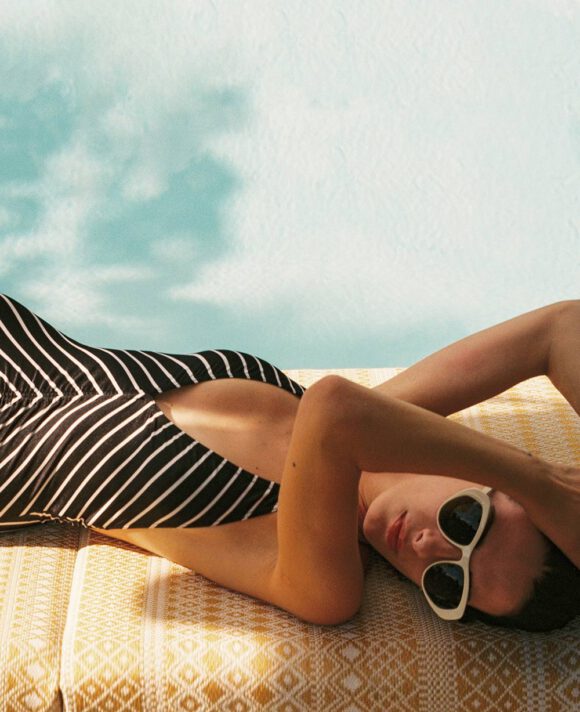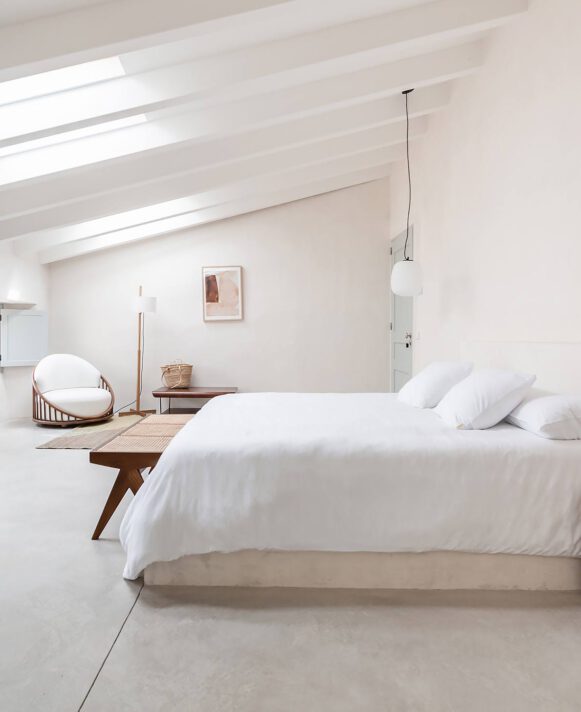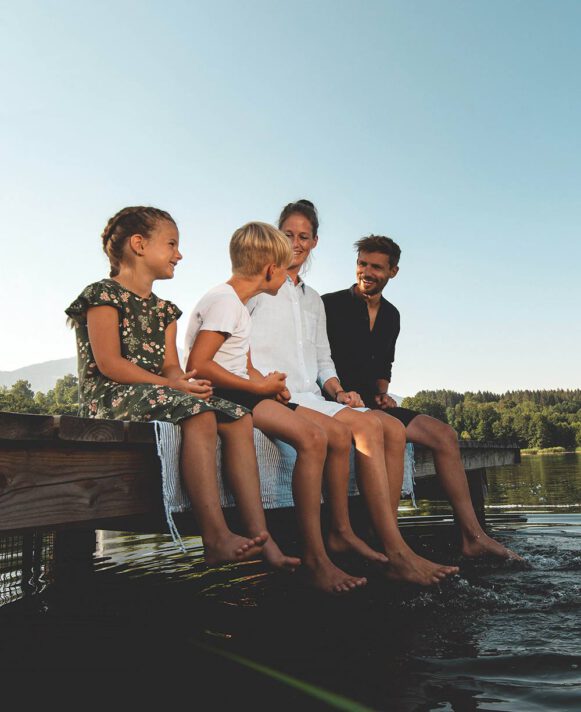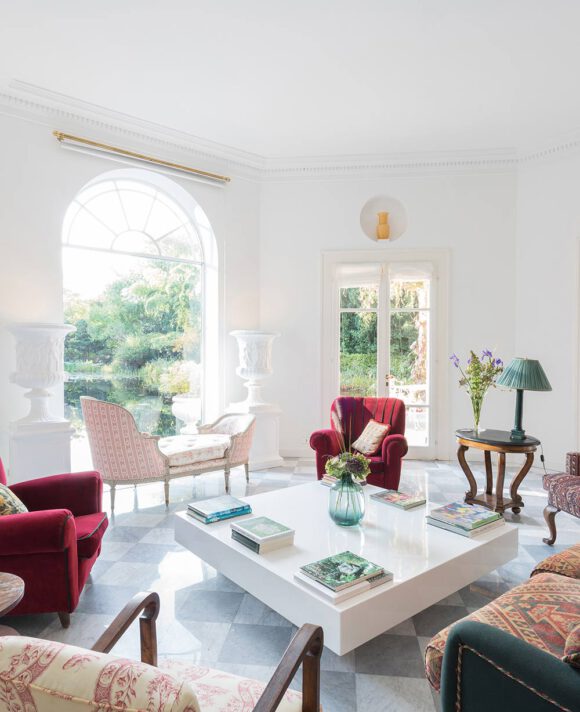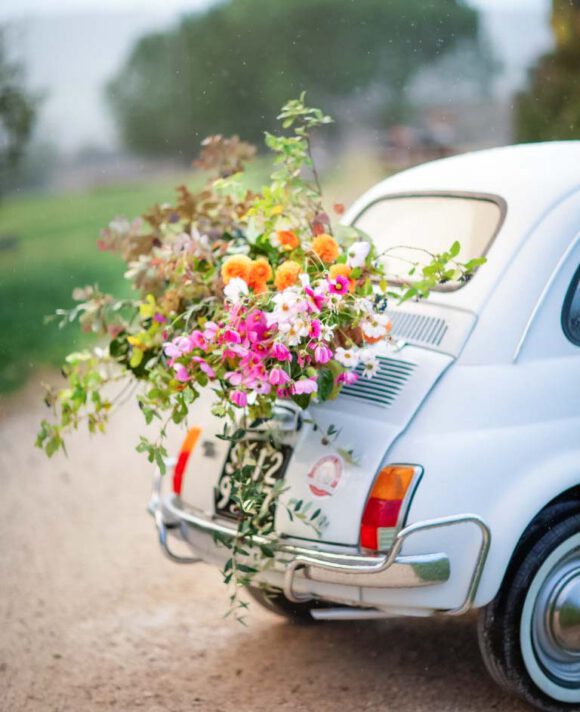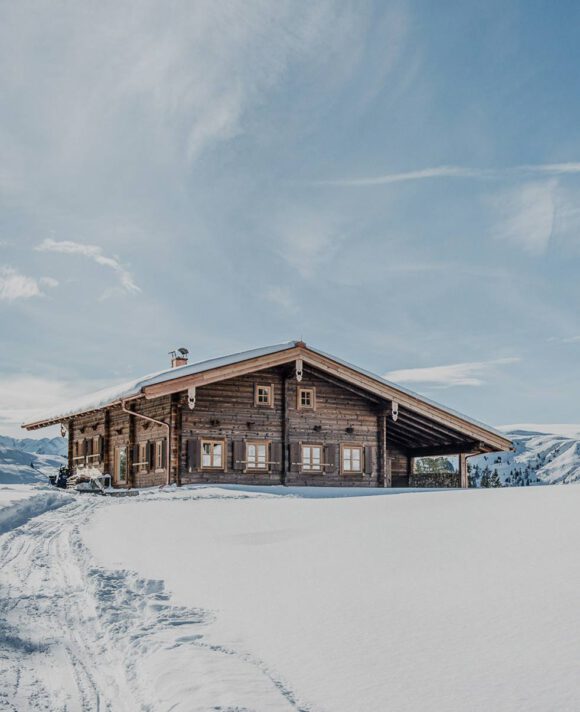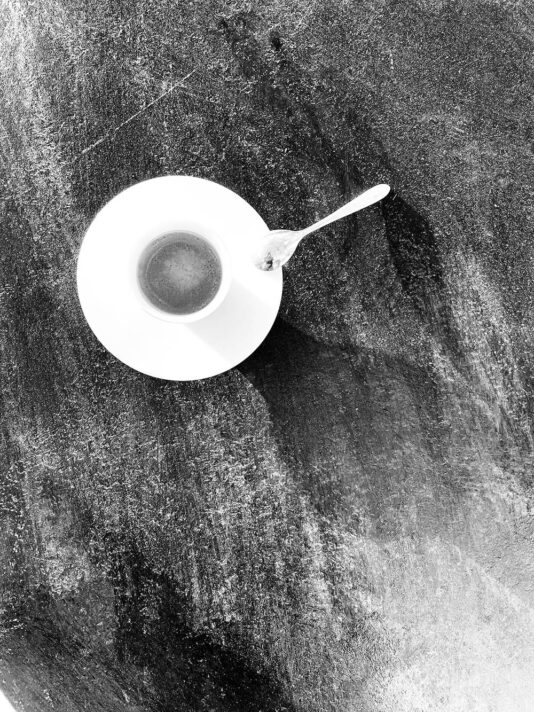This all started more than one hundred years ago. It has always happened in my family. Let me tell you a little story about my great-grandparents: My great-grandfather was an entrepreneur in a small village in northern Portugal. One day, he travelled to Germany to buy a turbine. He wanted to electrify their whole village. And when he returned, he began to sell the electricity and energy to all those in the village — and for anyone who could not afford it, he would offer it to them, because he thought it was very important to the region’s development. And so, he believed in the future. He thought: if I help people out, we will all grow together and it will make a difference.
My great-grandmother, she — well, they had a big house in the centre of the village close to the church — she had ten children, and she would open up the ground floor of their house to welcome anyone who was passing by, to stay, who was in need. In those days, people would walk for three, four, five days from one place to the other. She would look after them and their wounds, and all the people who worked with her in the big house would cook for these visitors as well. Then, when these people would be fit, she would let them go.
This is, in fact, hospitality. I think people forget that hospitality comes from the word ‘hospital.’ You welcome people in need, you look after them, and whenever they are better they will follow their way. So whenever people speak to me about hospitality and want to talk about ‘the standards of hospitality!’ I want to ask them, ‘What does hospitality mean for you?’
I appreciate that tourism is not just about hospitality, but then those that are not should assume themselves as another kind of tourism, and what they offer is a room with a view or a room that does not have a view, or something else.
But this is not what we do.
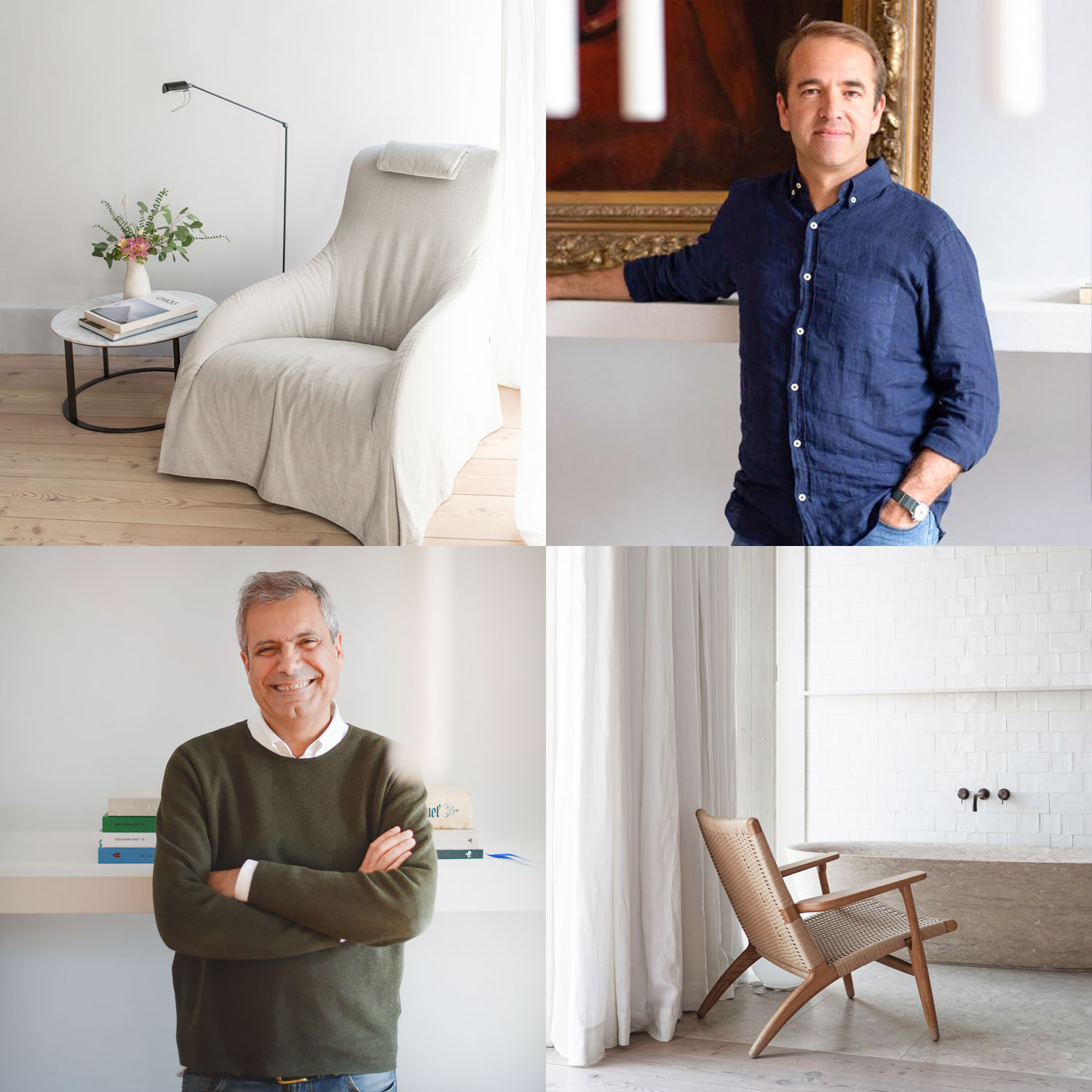
In Portugal we have this concept, especially in older families: when someone comes to your house for the first time, you show them to all of the house — which, I know, is really strange! I have studied and done my training to become a pilot in Scotland and I have English friends — I have known them for 20 odd years — and always, when I go to their house, we either stay in the dining room or in the living room. Sometimes when I want to take my plate to the kitchen, they will say to me, ‘Oh, no, João, please! We do it.’
While in Portugal, when you come to someone’s house, whether you stay for the night or even just visit for dinner or a coffee, people will show you everything! They will guide you through the whole house: ‘And here is the kitchen, and here’ — they open up the cupboards and they show you what they have inside — ‘then here is the fridge, if you want something just help yourself,’ then they go into their rooms and bathrooms, they show you the view from the bathrooms, and the balcony, and… it’s a guided tour to all of the house!
One day I tried to understand why they do this. Why do we, Portuguese, do this in our culture? I realised it is to make people feel at home. You want to show your friends how you live and to share this with them; you don’t want to hide anything from them. It’s this idea that whatever is mine is yours as well. If you feel like opening up another bottle of wine, you know where it is, you go to the fridge and you open it.
So what we do here, whenever new guests come to any of our houses, we present them to the whole team. We go into the kitchen and if the chef is there working we say, ‘This is David, he does this and this for breakfast,’ and David may ask, ‘By the way do you have any food allergies?’ And there in the kitchen is a conversation. Then we say, ‘This is Sokhemra. She is from Cambodia, and she does an incredible massage, and offers lots of positive energy as well. The first massage is always offered on the house so feel free to get to know her.’ Then Nuno, ‘He drives our beautiful Rolls Royce from the ’70s. He will take you to the airport. He is part of the family as well.’
We want you to feel like you are staying with some friends. We respect people’s privacy and space, of course, but it’s done in a very natural way. We are always working around how not to do tourism, how not to make people feel like tourists. Instead, it’s based on this relationship of: How shall we welcome our guests? How can we connect with them? What are people’s needs?
We opened Santa Clara here in Lisbon in 2017. One day I was chatting with my team about how important the different smells are, in the house. When you arrive in the afternoon and there is this smell of a cake being baked, and it makes you remember the afternoons you would spend at your grandmother’s house after school, or whatever it may be, and it all falls in and gives you this beautiful sensation. We were talking about this and what we could do. Then a week later, I am running down the stairs to come for a meeting and I see José already on the first floor. He is with his pan, like this, slowly moving the pan.
I go, ‘Hey! José! What are you doing here with this pan in the middle of the stairs?’
He says, ‘You know what, João, it’s almost 10 o’clock in the morning. It’s very strange. There’s no one downstairs yet for breakfast? I’m just waking them up with the smell, you know?’ He was doing this strawberry jam that morning, which had this beautiful smell, and here he was spreading the smell around the house so that people could feel the smell and could wake up, and maybe be driven to breakfast!
‘José,’ I said. ‘You’re really special. Come on, let’s give a hug.’
We have also come to realise that routines are very important in people’s lives. We feel that many people have lost some of the very basic family routines in their daily lives. So when guests stay with us, we try to bring those routines back and to mark those routines very well. We never tell them this! It’s very subtle and they have to perceive it. Some understand it one way, others understand it another way.
When I talk about routines, I talk about stretching yourself in bed when you wake up, opening the windows and letting the fresh air come in, pulling the bedsheets back, seeing yourself for the first time in the mirror that day. Leaving your room to the smell of breakfast being prepared, coming down and sitting at this long, communal table and sharing breakfast with other people — and really spending an hour at breakfast, instead of 15 minutes grabbing some things and just walking out. I feel that everything we do should be done with a compass. There should be a rhythm to everything. So, if it’s to write a letter, okay, let’s give them the most beautiful desk, the most beautiful paper, a really nice pen with which they will like to write, and the correct light. Let’s work on it. If it’s about breakfast, let’s work on the breakfast. If it’s going into the garden, let’s make it special as well. All things, everything. Giving attention to these small details.
The people who work with me, when they are more okay with me and there is a very open relationship, if they have to point out one thing, they will probably point out the same thing. Which is: ‘João, you are never happy with anything.’ And I always tell them, ‘Yes! That’s how I feel!’
‘We’ve done it this way and now you want to do it another way??’
‘I think so, yes, because now I’ve discovered an even better way to do it.’
Probably, it has a little to do with perfectionism, but it also has to do with this will of making other people happy.
Whenever I come up with an idea, I say, ‘I want to meet up in three days and I want to discuss (this).’ So we go and everyone has the same vote. We all have one vote independently, whether it’s the third row in the kitchen or if it’s me, we all vote the same way. We just have to put our ideas out, to express them and our beliefs, and usually we get to a conclusion. After getting to that conclusion, generally it’s been very easy to put it into practice because that conclusion came from a good argument, from a good discussion. It’s never: ‘João now wants for everyone to do (this).’ Instead, everybody understands it. I think that’s very important. We do it in a very collective way.
We often ask guests if they can give us one suggestion, even they don’t write it down — if it’s informal, verbally. We always say in our team, ‘It’s not a rule! Let’s try to implement it. If it works, let’s improve it. If it doesn’t work, let’s forget it about!’ So whenever a guest leaves a suggestion for us, we always discuss it and, depending on what the suggestion is, I create a small team around me to work on the suggestions. We implement, we take pictures, we adjust. Then, I write back to our guests saying, ‘Thanks to your suggestion, we are now serving breakfast in the garden. People who come and stay with us are loving it. Thank you. Next time you come back, you will be able to have your breakfast in the garden as well.’ — Or whatever it may be. The impact has incredible because people are not used to it, to having someone do what they have suggested! They write back saying, ‘João, this is incredible! How can you do this? How can you answer me with all that you have to do?’ For me, it’s because it’s around people, so that’s all that we have to do. They are our guests, people who are invited to sit at the table, friends, so it’s always this. It’s always with the people in the centre of the equation that you solve these things. And everyday is different, and every guest we host is different, so it’s the chance of welcoming one more. And one more, and one more.
We are the size of a small lab in which we can try things out. If you are talking about The Ritz or Four Seasons, it would be difficult for them to implement a strategy like this because it would be a huge risk if it didn’t work. But it doesn’t have a huge, negative impact on us. We have this good thing; we are smaller.
My grandparents used to celebrate their birthday together on the same day, because their birthdates were just one day apart from each other. Always, they would host a party in the middle of those two dates and invite everyone to their house. The gardener who used to work there with his family, he would sit just across from a president of the bank, who would sit next to my grandfather, across from the Minister of Defence. They would all sit at the same table, chat along, and feel exactly the same. This has always inspired me. Whether it’s the carpenter or the president or the CEO of a big company, I never had this barrier of who I should or should not talk to.
A friend of mine, well, the way I got to know him was: one day I was watching one of the people here who cleans the roads, (some of them come only with a broom). I stopped my car and I was looking at how he was cleaning the road. He wouldn’t leave one tiny leaf behind! It was almost as if he was cleaning his house, in such a beautiful way. And his uniform was all very clean, his broom was the most beautiful one, and you speak to him and, suddenly, you understand that he feels so happy and so proud of what he is doing. Cleaning the roads for other people.
“It’s really not what you do, but how you do it.”
On the other hand, I am friends with CEOs of large companies and they often say to me, ‘I have the worst job in the world. This is horrible, I hate this. I have to do (this), then I have a meeting, then I have to do (this)…’ — so it’s really not what you do, but how you do it. It’s not even about how much you earn — obviously, you should earn for what you do, to compensate what you do, that’s very important because it’s one of the ways to recognise your work and your effort, but — it’s much more than that. Love and happiness come from completing little tasks very well. If you do this, you will feel happy on your own. You are the sunshine! And you don’t need anyone else to tell you, ‘You are great at this (guest relations). You really did incredible work looking after these people during their stay.’ Because you know what you do and you feel it. You look into guests’ eyes, their smiles and faces, and that tells you everything. It’s about passion. Doing things well and looking after others, with this heart in the right place.
When we recruit, generally these people come from a tourism background and they arrive with many preconceived ideas — and that’s one of the first things I have to do: to wash their brains! I think if, instead of having people from hospitality, we had nurses here working with us, it would work just as well. It’s very interesting because when someone new comes into the team who doesn’t really fit, generally he or she will ask to leave and I don’t need to send them away. I think it’s because other people are already more or less tuned-in to this philosophy, and they love what they do. They enjoy looking after the guests in a very natural way, so it’s either a natural fit or it’s not — either they love this concept and they really gather into this, or it never fits. It’s a difficult business to run because it’s a business with people, for people.
We have had very professional people here with a lot of experience in tourism, but it just doesn’t fit because when they go to the door and say goodbye to the guests, they want them to go! While we want them to come back and we are already sad that they are leaving. And this very difficult to scale. You can’t. This is something that has a specific size. This is why all of our houses never have more than four to six rooms — they all have to keep this size otherwise we will lose it. And I have to be very strict with this, to always keep on this path and never lose track. I can’t look at a huge, beautiful building and say, ‘Now I’m going to do a 50-room hotel.’ And this can be difficult.
There are other things I find very hard in our business. Looking after my team and keeping them motivated and cherished; that’s almost all that I do now. Keeping maintenance in place. For example, there is a door that has been damaged, but we are not going to call in the carpenter just to fix a tiny thing on the door. Okay, but then it doesn’t look perfect. What shall we do now? I think if we can have another two to three houses, then we will have the chance for someone to work just for us and to look after the houses as you would look after a little baby. That would be great. But until then, it’s difficult.
Another important one to talk about is consistency, which unfortunately we still don’t have. Almost a year ago already, this has been one of my aims. It is difficult because you can only do it with lots of training and by being close to people, but when you have to go on a flight and you are away for four or five days, when you return a lot of the things are already gone. So you really need to have responsible people in what they do. They must know that it doesn’t have to do with just pleasing others. It’s about truly connecting in a more profound way, about this very thin and fragile connection with people. It’s based on the guests’ experiences and deeply touching their hearts. It’s based on this passion for welcoming others. If this can be the case, then everyone in the team will feel very happy.
I think we have found this track, this way of thinking, choosing, designing. It all has to be very local. The materials should never be more than half an hour away from the house. Hopefully, it always values craftsmanships. Hopefully, it’s done by local people. Hopefully, those people who are interacting with our guests are people who have this genuine feeling about welcoming others. That’s why the service is completely different in each of our houses. For example here in Lisbon, the breakfast takes an hour. It’s super detailed with many different things, they’re cutting the bread in front of you, everything has been designed. While in the farm house, it’s a farm breakfast. If you go to the house close to the sea, it’s a kind of a beach breakfast. All the houses have been designed to be where they are. You can’t transport a house from the south of France and deposit it here, because that house speaks about that area, about that region, about that people.
My father, the way he taught me is if someone is going to come over, we are going to give them the best fish that we have, and we are going to give them the best wine, and it really has to be cold, and fresh, and the temperature has to be just right. You don’t want to get rid of that bottle of wine you don’t really like, so they can drink it. No, it’s the other way around! It’s this genuine way of knowing that our happiness comes from making other people happy, and all the beauty around it. That’s it. There’s nothing much to it.
Yesterday we were having a chat in our team and we always choose a brainstorming idea. It was brought up yesterday to talk about revenue. I waited for the conversation to start but, halfway through, I felt I had to say, ‘Hey, it doesn’t really have to do with the revenue. It has to do with how can we improve? and how can we make people feel well?’ For example, we always offer a massage when people stay with us. It’s a beautiful massage. It’s a full one-hour with, really, one of the best therapists I have ever met in my life. So I was telling them, ‘When we offer, we have to offer the best that we have! Let’s offer something that we would like for ourselves as well. Let’s not offer a 10-minute foot massage instead, because that’s not the point…’ Numbers have to match up, projects must be rewarded, investments as well — everything has to be stable — but my main point is not revenue. If you do it well, the revenue will be there. More than focusing on the result, focus on the process.
The other day, we had a meeting around how we should treat our guests — shall we address them by ‘Mister (his last name)’ or shall we treat them by ‘Beverly’ or ‘Mark’? It was quite an interesting discussion! We ended up doing it as we already do it, which is the most natural way: to treat people by their first name. It doesn’t have to do with showing respect because you show respect and you earn their trust if you do things well — if you look after them as they were your best friends in town and they were coming for the first time; when you answer their emails, it’s as if you are answering an email to a good friend of yours.
Because most of them are younger, in their 20s, and I have had nearly twice the life experience and time to learn — I should have learned a little bit more! (although I’m a slow learner, but) — what I always try to pass on to them is that our most simple happiness comes from doing simple tasks well. By doing those simple tasks well, we will feel accomplished. It’s this idea that you lay down and you feel that you couldn’t have done better for your day than you did. And it’s so very comfortable. It’s so good. It’s beautiful.
© Joao Rodrigues, Lissabon / Mai 2020.
The whole story was first published in the beautiful blog Fields in Fields. A big thanks to their founder Beverly for letting us publish these words as well. You may also follow their beautiful Instagram here.
Contacts & Bookings
Silent Living
c/o Santa Clara 1728
Campo de Santa Clara 128 RC
1100-473 Lisbon
Portugal


